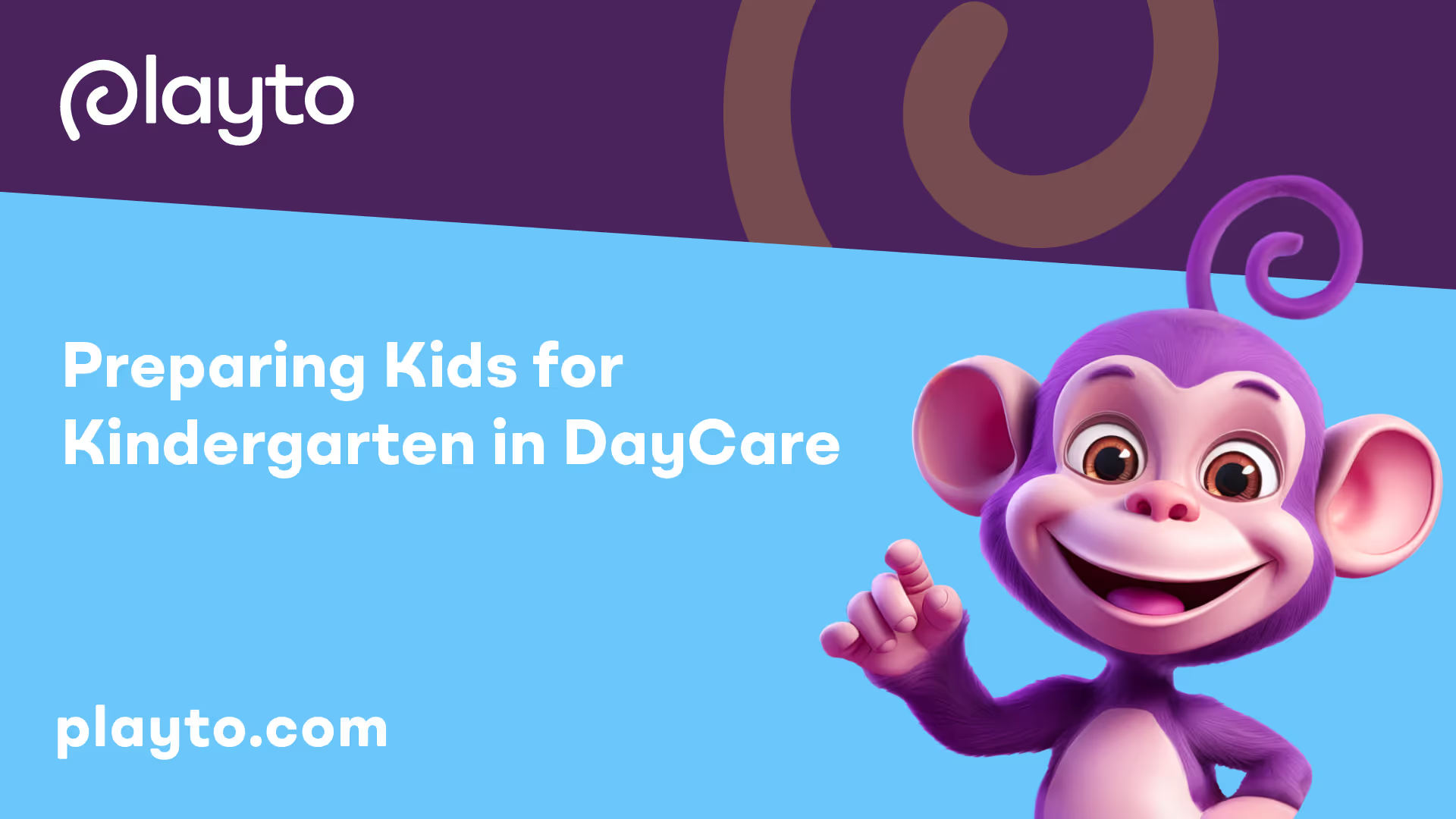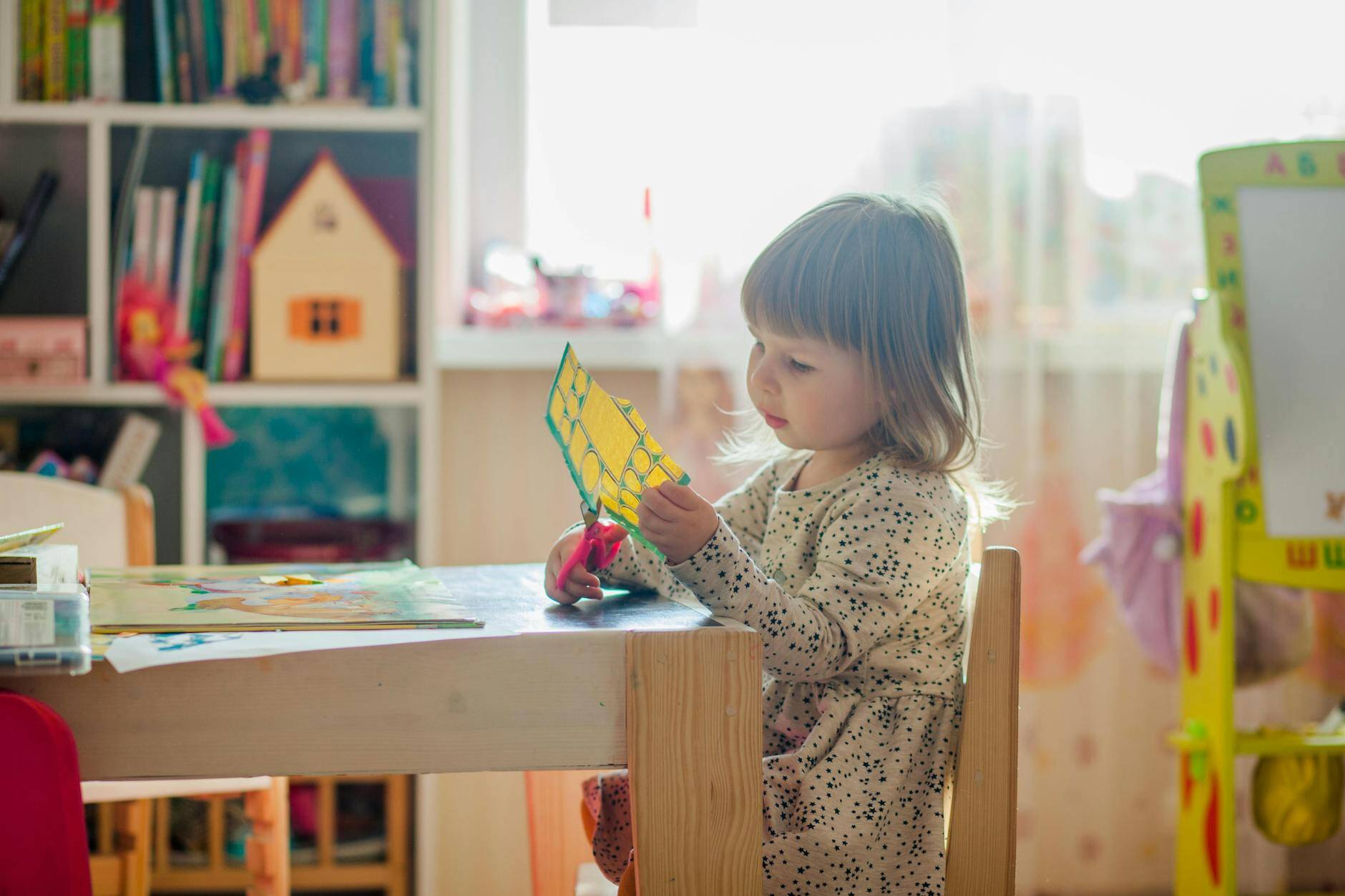
Kindergarten Readiness Skills
Preparing children for kindergarten in daycare involves developing a range of readiness skills that will help them transition smoothly into their educational journey. The essential areas of focus include motor skills, language skills, and reading readiness.
Motor Skills and Self-care Skills
Motor skills play a crucial role in kindergarten readiness. Children need to develop the ability to perform tasks such as holding a pencil and using scissors effectively. Additionally, self-care skills, including getting dressed independently and managing bathroom tasks, are also vital.
The following table outlines specific motor skills and self-care capabilities that children should acquire before entering kindergarten:
Skill Type Examples in Motor Skills Examples in Self-care Skills
- Fine Motor Skills: Holding a pencil, using scissors; buttoning shirts, zipping jackets.
- Gross Motor Skills: Running, jumping; climbing on playground equipment.
- Self-care Skills: Managing shoes & socks; washing hands, brushing teeth.
Language Skills for Kindergarten
Language skills are integral to a child's readiness for kindergarten. Children should be able to speak in complete sentences, express their needs and wants clearly, and understand two-step directions. Recognizing rhyming words and connecting sounds to letters are also essential components.
Skill Type Key Language Skills
- Expressive Language: Speaking in complete sentences.
- Receptive Language: Understanding two-step instructions.
- Phonological Awareness: Recognizing rhyming words.
- Literacy Connection: Connecting letter sounds to letters.
Fine motor skills also support language development, as children use their hands while drawing, writing, and coloring. Encouraging activities that involve manipulating small objects, such as playdough or building blocks, can enhance these skills.
Reading Readiness Skills
Reading readiness skills set the foundation for literacy in kindergarten. Key elements of reading readiness include enjoying stories, identifying letters of the alphabet, and connecting sounds to letters. Children should also be able to draw pictures to express their ideas and recognize rhyming words to develop phonemic awareness.
Reading Skill Type Important Reading Readiness Skills
- Story Engagement: Enjoying stories.
- Alphabet Recognition: Identifying letters.
- Phonemic Awareness: Recognizing rhyming words.
- Expressive Drawing: Drawing pictures to express ideas.
These skills in motor development, language, and reading form a solid foundation for the future learning experiences of children. Daycare providers can support this development through play-based learning and structured activities. For more on how to effectively support children's development, explore our article on encouraging physical development in daycare.
Math Skills for Kindergarten
In preparing kids for kindergarten in daycare, developing foundational math skills is important. However, equally vital are the social and emotional skills that support these academic abilities, along with the importance of imaginative play.
Social and Emotional Skills
Social and emotional skills are essential for children transitioning into kindergarten. These skills encompass the ability to interact with peers, separate from caregivers without distress, and maintain focus on tasks for at least five minutes. When children develop social and emotional competencies, they are better equipped to navigate the structured environment of a classroom.
Here are some key social and emotional skills necessary for kindergarten readiness:
Skill Description
- Peer Interaction: Ability to engage with other children appropriately.
- Emotional Regulation: Ability to manage feelings and reactions to various situations.
- Attention Span: Ability to concentrate on tasks for a minimum duration.
- Conflict Resolution: Skills to negotiate and resolve disputes with peers.
To support the growth of these skills in daycare settings, encourage activities that promote group play, communication, and cooperation among children.
Importance of Imaginative Play
Imaginative play is crucial for children's overall development, as it fosters creativity, problem-solving, and social skills. Providing ample opportunities for unstructured imaginative play allows children to engage in negotiation, conflict resolution, and cooperative problem-solving [3].
Here are several ways imaginative play benefits children:
- Enhances Social Skills: Through role-playing and storytelling, children practice taking turns, listening, and communicating effectively.
- Promotes Emotional Awareness: Engaging in play helps children recognize and express their emotions while learning to identify feelings in others.
- Fosters Cognitive Development: Imaginative scenarios challenge children to think critically and creatively, promoting cognitive flexibility.
By creating an environment that encourages imaginative play, daycare providers can significantly enhance children's social development and prepare them for the challenges of kindergarten. Engaging in shared stories and discussions allows children to practice important social interactions in a safe and supportive setting [3].
For more suggestions on creating a nurturing daycare environment, consider implementing strategies aimed at socialization benefits in daycare or explore daycare strategies for handling anxiety.
Fine Motor Skills Development
Fine motor skills are crucial for children's development as they prepare for kindergarten. These skills are essential for everyday tasks and academic activities. Establishing a strong foundation in fine motor skills will help children navigate their daily lives more effectively.
Teaching Fine Motor Skills
Fine motor skills do not develop naturally like crawling and walking; they require explicit teaching through various activities. It involves coordinating actions with visual input, which makes the learning process more complex. By age 5 or 6, children can typically copy a letter, and by age 8, they can tie their shoes. Understanding these developmental milestones helps parents and teachers know what to expect from children as they grow.
To effectively teach fine motor skills, daycare providers can incorporate a variety of engaging activities. Common activities that facilitate skill development include:
Activity Skills Developed
- Playdough: Hand strength, dexterity.
- Puzzles: Problem-solving, coordination.
- Drawing & Coloring: Grip and control.
- Cutting with Scissors: Precision, coordination.
- Building with Blocks: Spatial awareness, creativity.
- Threading & Lacing: Finger dexterity, focus.
These activities not only enhance fine motor skills but also encourage children to learn important social skills through play. Engaging in play allows children to take turns, follow directions, share toys, and cooperate to achieve common goals.
Importance of Play in Skill Development
Play serves as one of the most effective methods for learning fine motor skills. It blends enjoyment with essential developmental benefits. Through various forms of play, children refine their hand-eye coordination while also developing finger strength and dexterity, which are vital for tasks required in kindergarten.
Fine motor skills are necessary for performing everyday activities, such as:
- Using pencils and scissors
- Buttoning clothing
- Opening lunch boxes
- Drawing, writing, and coloring
- Cutting and pasting
As children engage in playful activities, they practice these skills in a natural and enjoyable way, setting them up for future success in the classroom. For further insights into socialization during daycare, visit our article on socialization benefits in daycare.
Daily Routines and Predictability
Creating a structured environment through daily routines is essential for young children in daycare. This predictability significantly contributes to their emotional well-being and overall development.
Supporting Emotional Well-being
A consistent daily schedule provides children with a predictable environment, helping them feel secure and confident. Engaging, predictable settings, combined with positive interactions with adults, greatly support children's social and emotional growth. Research shows that following clear schedules and routines can help prevent challenging behaviors and assist children as they adapt to new experiences.
Here's a breakdown of how routine affects emotional well-being:
Benefit Description
- Confidence: A predictable day helps children feel secure.
- Adjustment: Children adjust to changes more easily with routines.
- Relationships: Familiar activities promote connections with caregivers.
For infants and toddlers, engaging in familiar routines strengthens relationships and nurtures a sense of belonging. By confidently participating in these activities, children build self-esteem and trust in their surroundings.
Partnering with Families
Collaboration between daycare providers and families is vital for maintaining effective routines that benefit children's development. Hemmeter, Ostrosky, and Fox (2006) emphasize the importance of this partnership in creating schedules that support social and emotional growth both in daycare and at home.
Daycare providers can share strategies for reinforcing routines at home. This cooperation can include:
- Regular communication about daily activities.
- Guidance for parents on how to introduce similar routines at home.
- Resources for managing transitions and establishing consistent practices.
In conclusion, understanding and implementing consistent schedules, along with clearly defined routines, play a significant role in preparing kids for kindergarten in daycare. This joint effort supports children's emotional wellness and fosters an environment where they can thrive. For more resources on adjusting to daycare, consider visiting our article on is your child ready for daycare?.
Social Development in Daycares
Fostering social development in daycares is essential for preparing children for future educational environments. This includes engaging in parallel play and encouraging overall social skills.
Power of Parallel Play
Parallel play serves as a foundational element in social development for young children in daycare settings. It occurs when children play alongside each other without direct interaction, focusing on their individual activities. This type of play is especially prevalent in toddlers and allows them to develop essential social skills such as independence, observational learning, confidence, and respect for boundaries.
Through parallel play, children can engage in activities such as building with blocks, creating art, or playing with dolls while still being aware of their peers' presence. This environment fosters confidence as they learn to entertain themselves and make choices without relying solely on adult interaction. Additionally, it teaches the importance of personal space and respecting the boundaries of others.
To encourage parallel play effectively, daycares can provide a diverse range of toys and materials that capture children's interests. Creating a comfortable and safe environment is crucial for independent play. Caregivers and teachers should occasionally join in the activities to model sharing and taking turns, always prioritizing respect for personal space.
Benefits of Parallel Play
- Builds Independence: Encourages children to make choices and decisions on their own.
- Enhances Observational Learning: Allows children to learn from observing peers and caregivers.
- Boosts Confidence: Supports self-esteem through successful experiences and accomplishments.
- Teaches Respect for Boundaries: Helps children understand personal space and the importance of consent.
Encouraging Social Skills
Encouraging social skills in daycare involves intentional strategies that foster interactions among children. Social skills development is pivotal for building healthy relationships, developing communication skills, and promoting cooperation among peers.
Daycare providers can support the growth of social skills through structured activities such as group games or collaborative projects. These activities prompt children to engage with one another and communicate effectively. Additionally, caregivers can create opportunities for conflict resolution, helping children learn how to express their feelings and navigate disagreements constructively.
Another critical aspect is modeling appropriate social behaviors. Caregivers should demonstrate effective communication, empathy, and cooperation. By observing these behaviors, children can learn and imitate them in their interactions. Regularly providing positive reinforcement when children exhibit strong social skills can further encourage their development.
For more insights on socialization and its advantages for children, consider reading about the socialization benefits in daycare. By focusing on these strategies, daycare centers can play a critical role in preparing children for the social dynamics they will encounter in kindergarten and beyond.
References
[1]: https://www.understood.org/en/articles/skills-kids-need-going-into-kindergarten
[2]: https://childdevelopment.com.au/areas-of-concern/fine-motor-skills/fine-motor-activities/
[3]: https://www.rasmussen.edu/degrees/education/blog/social-development-in-children/
[4]: https://www.jackrabbitcare.com/blog/activities-for-teaching-fine-motor-skills-to-young-children/
[5]: https://eclkc.ohs.acf.hhs.gov/quienes-somos/articulo/importance-schedules-routines
[6]: https://www.procaresoftware.com/blog/the-power-of-parallel-play-building-social-skills-in-daycares/
